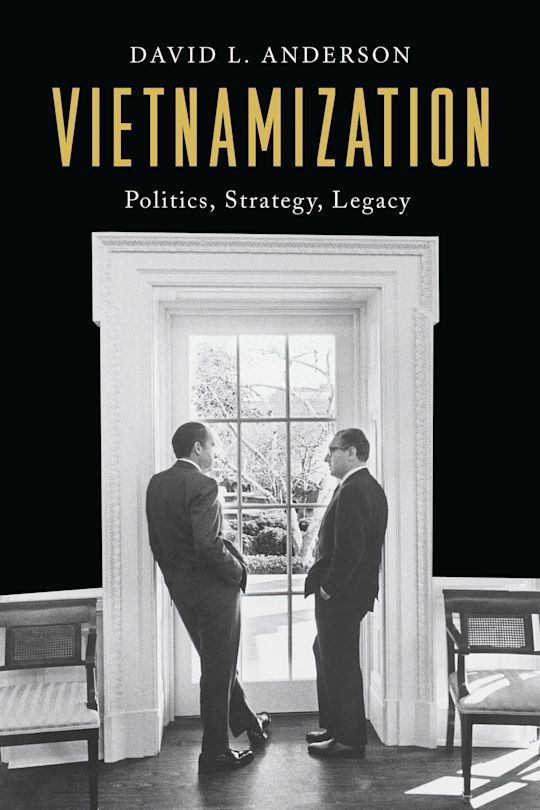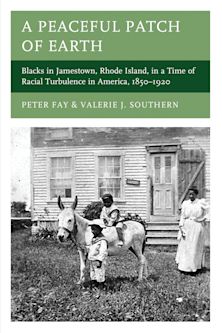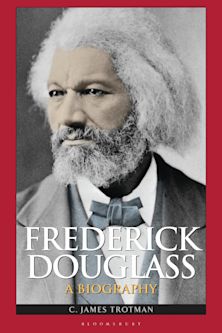- Home
- ACADEMIC
- History
- United States History
- Vietnamization
This product is usually dispatched within 1 week
- Delivery and returns info
-
Free US delivery on orders $35 or over
You must sign in to add this item to your wishlist. Please sign in or create an account
Description
When he took office in 1969, the term that Richard Nixon embraced to describe his plan for ending the American war in Vietnam was “Vietnamization,” the process of withdrawing US troops and turning over responsibility for the war to the South Vietnamese government. The concept had far reaching implications, both for understanding Nixon’s actions and for shaping U.S. military thinking years after Washington’s failure to ensure the survival of its client state in South Vietnam. In this book, Vietnam War expert David L. Anderson explores the political and strategic implications and assesses its continuing, significant impact on American post-Vietnam foreign policy.
Product details
| Published | Oct 31 2019 |
|---|---|
| Format | Hardback |
| Edition | 1st |
| Extent | 192 |
| ISBN | 9781538129364 |
| Imprint | Rowman & Littlefield |
| Illustrations | 8 b/w photos |
| Dimensions | 9 x 6 inches |
| Series | Vietnam: America in the War Years |
| Publisher | Bloomsbury Publishing |
About the contributors
Reviews
-
An outstanding blend of memoir and historical research from one of the nation’s leading scholars on the American war in Vietnam. David Anderson had produced a one-of-a-kind book on Nixon’s Vietnamization policy that initiated the withdrawal of US forces from Southeast Asia. It is an immensely insightful read that is both personal and fair, a work that will become indispensable for understanding why and how the United States departed from the longest, most unsatisfactory conflict of the Cold War era.
Gregory A. Daddis, San Diego State University, author of Withdrawal: Reassessing America's Final Years in Vietnam
-
Based on recently declassified records, the latest scholarship, and his own experience serving in Vietnam, David Anderson’s Vietnamization, is an original and welcome study of President Richard Nixon’s Vietnam policy and how the Vietnam War ended. Anderson analysis of Nixon’s policy demonstrates that Vietnamization did not work and could not work given the realities of the war. In the process, he successfully rebuts the “revisionists” claims about victory. Moreover, Anderson shows the parallels with Iraq and the misunderstanding of the lessons about counterinsurgency from the Vietnam War. Vietnamization should be read by scholars and students of the Vietnam War, and practitioners of American foreign policy, alike.
David F. Schmitz, Robert Allen Skotheim Chair of History, Whitman College
-
David Anderson solidified long ago his renown as one of the best Vietnam War scholars of his generation. This latest book is a testament to his erudition. It sheds revealing new light on a critical aspect of the war on the basis of an impressive array of pertinent sources. It also reminds us that despite the passage of time, the Vietnam War still matters a great deal to American civilian and military decision-makers
.Pierre Asselin, Dwight E. Stanford Chair in US Foreign Relations, San Diego State University
-
In this authoritative study, David Anderson reveals both the deep roots and the lasting costs of Richard Nixon’s failed attempts to “Vietnamize” the Vietnam War. By combining extensive archive research with his own experiences in Vietnam as a sergeant in the U.S. Army Signal Corps, Anderson shows that Vietnamization was neither innovative nor militarily effective. But the myths that Nixon and his supporters spun about Vietnamization had a long half-life, as shown by their later re-emergence in America’s counterinsurgency wars in Afghanistan and Iraq. A masterful re-interpretation by a leading scholar of Vietnam War history.
Lt. Col. Edward G. Miller (Ret), author of A Dark and Bloody Ground: The Hürtgen Forest and the Roer River Dams, 1944-1945
-
Students and scholars of the Vietnam War have long benefitted from David Anderson, a leading authority on American intervention in Southeast Asia. Now we are once again in his debt. The history of Vietnamization has not been told like this. Tapping into archival sources in the Nixon era and his own personal experience serving during this critical period, Anderson has written a powerful history on the fraught withdrawal of U.S. forces from Vietnam, and what that complicated process means for U.S. intervention today.
Lien-Hang T. Nguyen, Dorothy Borg Professor in the History of the United States and East Asia, Columbia University









